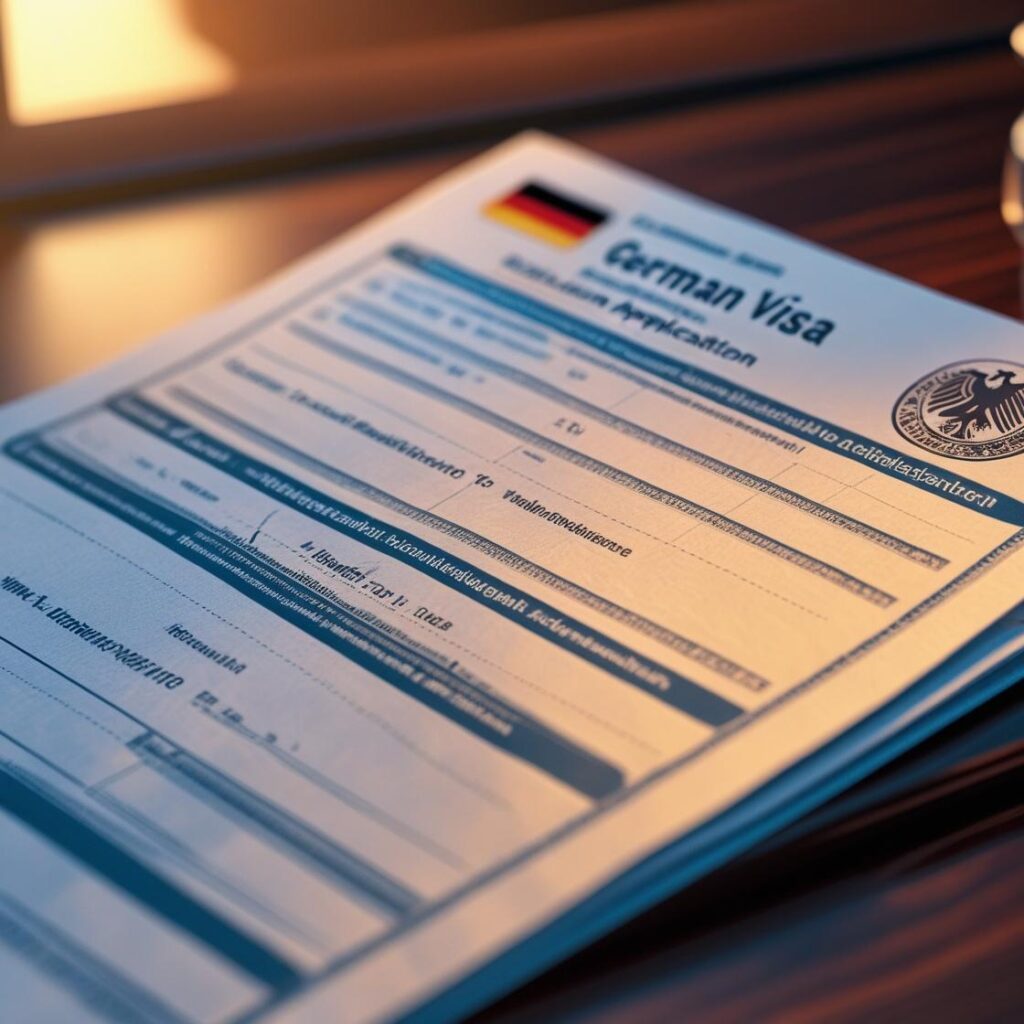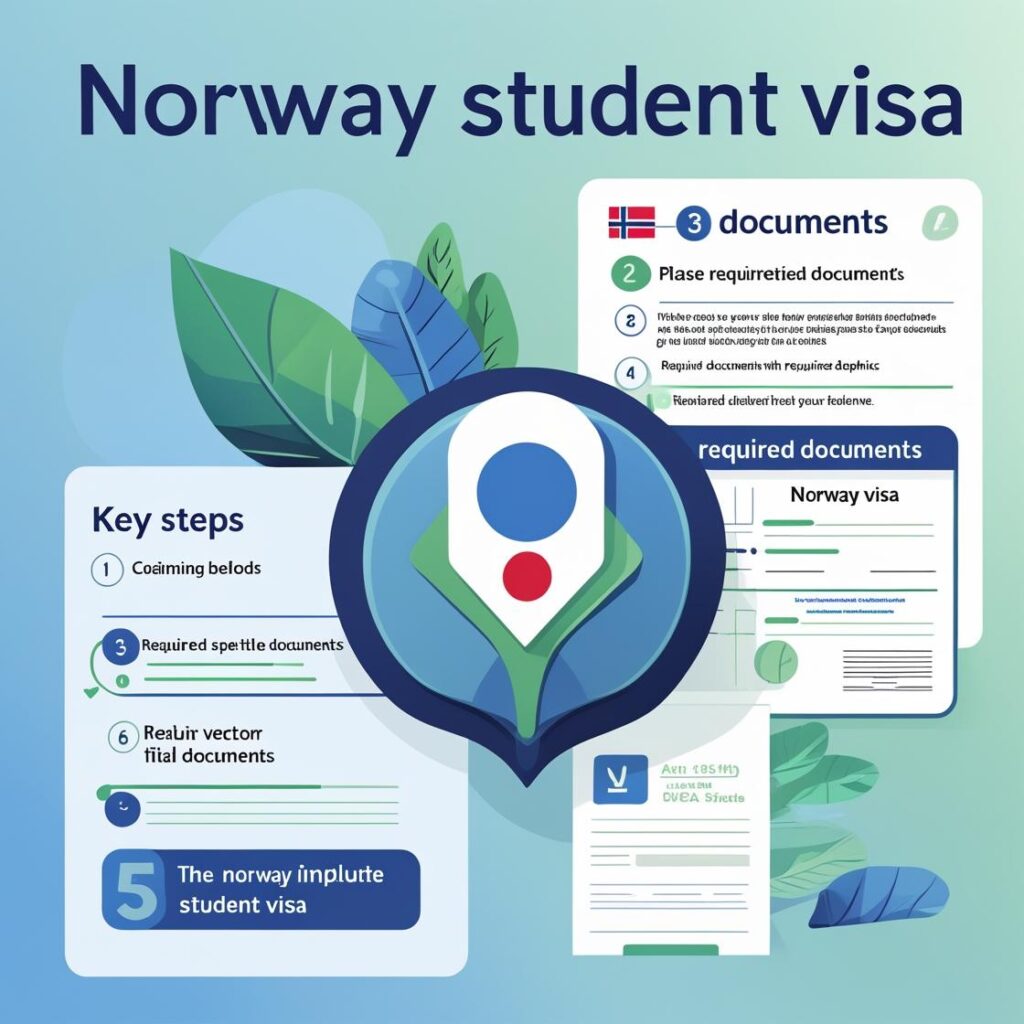Germany is one of the most sought-after destinations for international students due to its world-class education, affordable tuition, and vibrant cultural scene. For non-EU/EEA nationals, obtaining a student visa is a crucial step toward studying in Germany. This comprehensive guide covers everything you need to know about acquiring a German student visa, from eligibility requirements to the application process.
اقرأ أيضاً: تأشيرة كندا | كيفية الحصول على تأشيرة طالب؟
1. Understanding the German Student Visa
A German student visa allows foreign nationals to reside in Germany for the purpose of studying at a recognized university. This visa falls under the category of a long-term visa (national visa type D) and is typically issued for a period aligned with the duration of your academic program.
اقرأ أيضاً: تأشيرة كولومبيا | كيفية الحصول على تأشيرة طالب؟
There are three types of student visas:
اقرأ أيضاً: تأشيرة البحرين | كيفية الحصول على تأشيرة طالب؟
- Student Applicant Visa (Visum zur Studienbewerbung): For those who haven’t been admitted yet but want to apply in person.
- Student Visa (Visum zu Studienzwecken): For those who have already received admission.
- Language Course Visa (Visum zum Sprachkurs): For those enrolled in language courses lasting 3 to 12 months.
2. Eligibility Criteria
To be eligible for a German student visa, applicants must meet specific requirements:
اقرأ أيضاً: تأشيرة النرويج | كيفية الحصول على تأشيرة طالب؟
- A valid university admission letter from a recognized institution.
- Proof of sufficient financial resources (minimum €11,208 in a blocked account for one year).
- Health insurance coverage.
- Valid passport and previous academic transcripts.
- Proof of German or English language proficiency, depending on the program language.
3. Documents Required
Applicants must prepare a comprehensive set of documents, including:
- Completed visa application form.
- Valid passport with at least two blank pages.
- Recent biometric photographs.
- University admission letter.
- Proof of financial means (e.g., blocked account, scholarship).
- Academic certificates and transcripts.
- Proof of language proficiency (TestDaF, IELTS, TOEFL).
- Health insurance confirmation.
- Visa fee payment receipt (approximately €75).
4. Applying for the Visa
You must apply at the German embassy or consulate in your home country. Here are the steps:
- Schedule a visa appointment.
- Gather and prepare all necessary documents.
- Attend the appointment and submit your documents.
- Pay the visa fee.
- Wait for processing, which typically takes 6 to 12 weeks.
5. Financial Proof Requirements
Financial proof is essential to ensure you can support yourself during your studies. The most common way is to open a blocked account (Sperrkonto) in Germany with a minimum deposit of €11,208.
Other acceptable financial proof options include:
- Scholarship confirmation.
- Formal obligation letter (Verpflichtungserklärung) from a sponsor living in Germany.
- Bank guarantees or student loans.
6. Health Insurance for Students
Health insurance is mandatory for all students in Germany. There are two types:
- Public health insurance: Affordable and widely accepted, often required for degree programs.
- Private health insurance: Usually for language course or preparatory students, or students over 30.
Public insurance providers include TK, AOK, and DAK, with monthly premiums around €110.
7. Language Proficiency Requirements
Depending on your course language, you’ll need to prove your language skills:
- German-taught programs: TestDaF, DSH, or Goethe certificates.
- English-taught programs: IELTS (typically 6.0+) or TOEFL (minimum 80 iBT).
Some universities waive these requirements if your prior education was in the same language.
8. What Happens After You Arrive?
After arriving in Germany, students must:
- Register their address at the local registration office (Bürgeramt).
- Apply for a residence permit at the local Foreigners’ Office (Ausländerbehörde).
- Activate their blocked account.
- Enroll at the university and get a student ID.
Timely compliance with these requirements is essential to maintain your legal stay.
9. Working While Studying
Student visa holders can work:
- Up to 120 full days or 240 half days per year.
- Internships during semester breaks also count toward this limit.
Jobs on campus or as research assistants may not count toward this limit, depending on the contract.
Earning additional income can help cover living costs, but students must still maintain academic progress.
10. Extending or Renewing Your Visa
If your program extends beyond your visa duration, you must renew your residence permit:
- Apply before the current permit expires.
- Submit updated financial proof and academic progress reports.
- Visit the Foreigners’ Office for biometrics and document verification.
You can also switch to other visa types after graduation, such as the job seeker or employment visa.
Germany’s student visa process is structured but manageable with the right preparation. By understanding each step and meeting the requirements, you can begin your academic journey in Germany smoothly.



